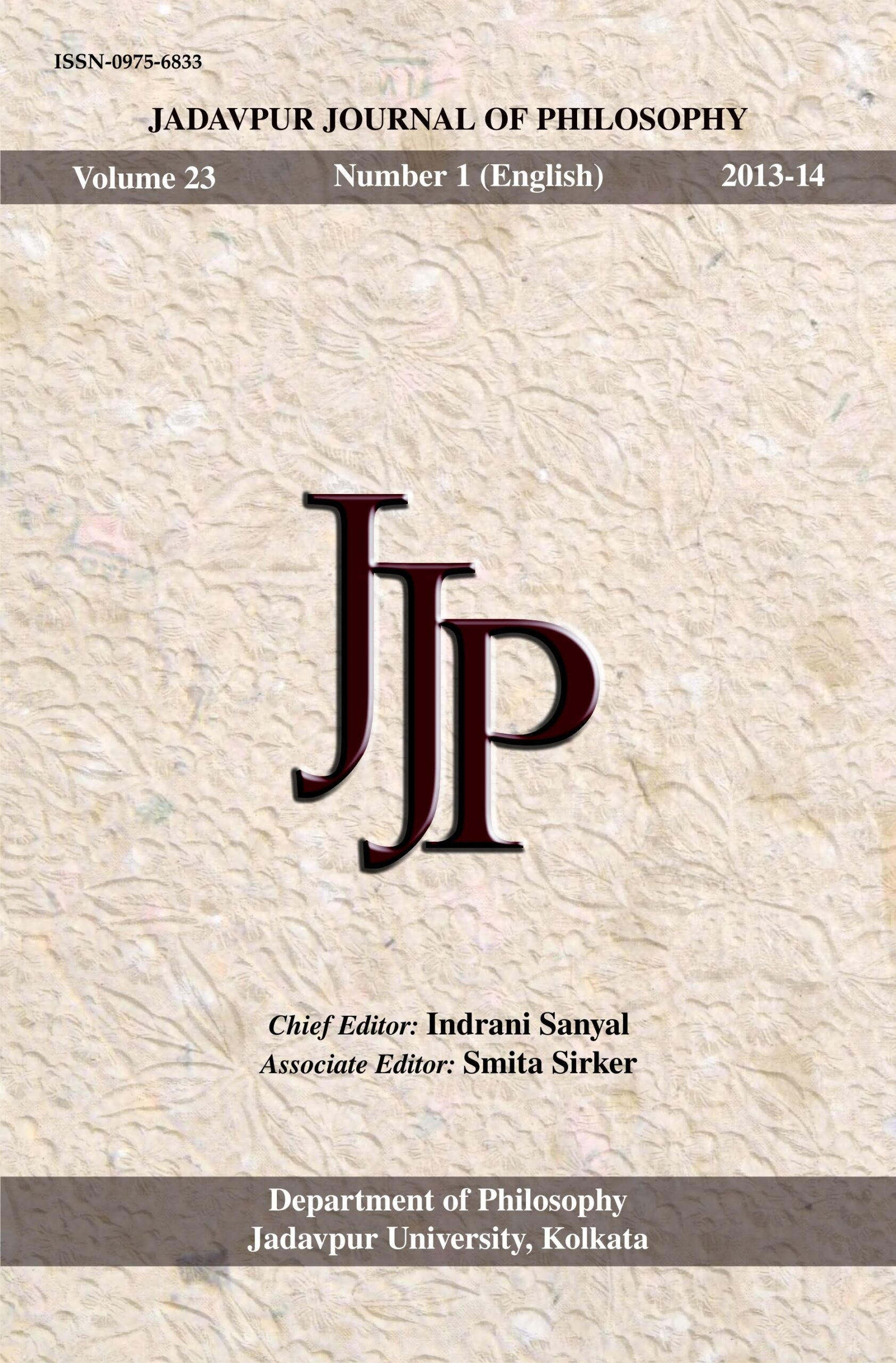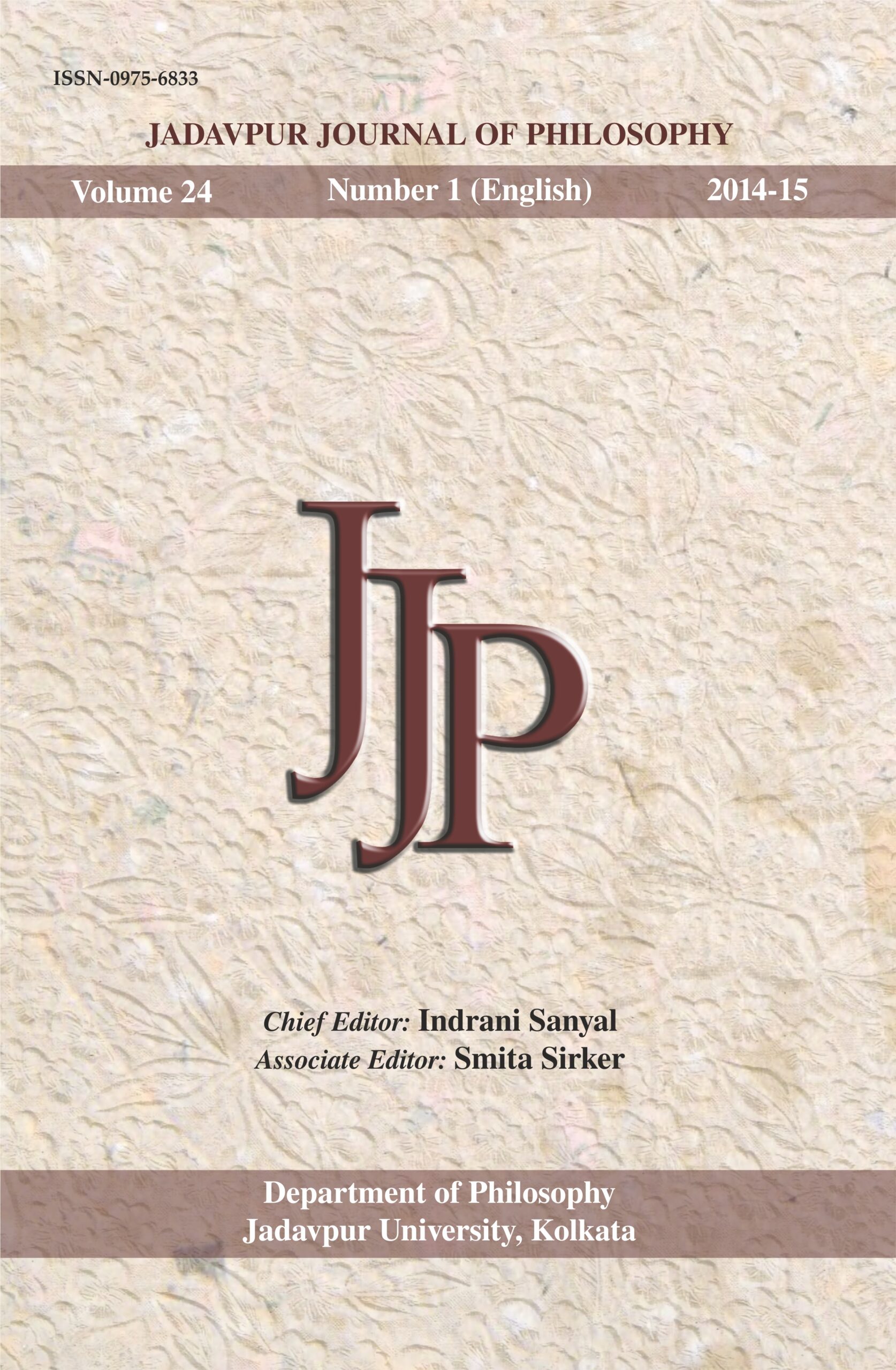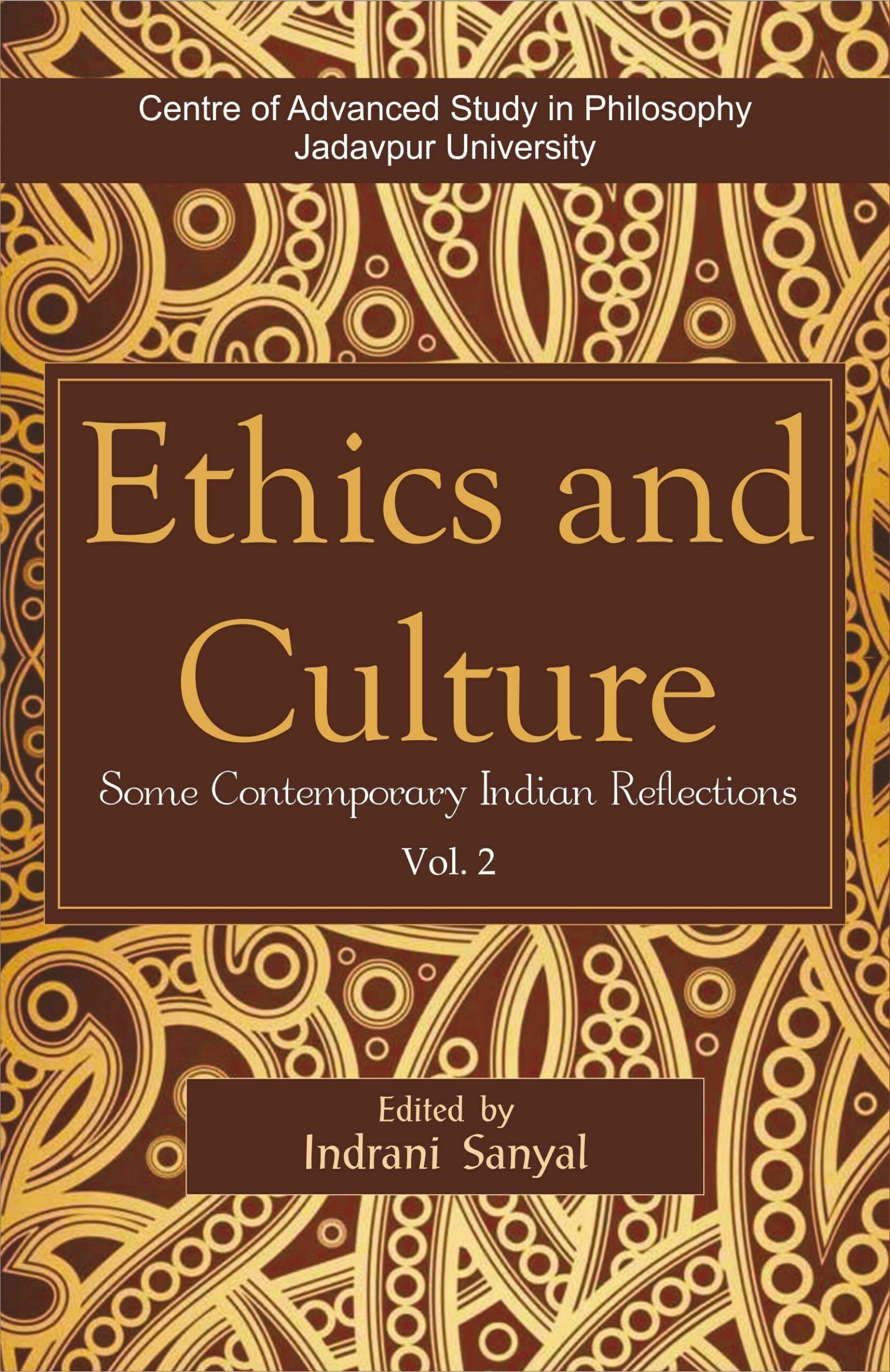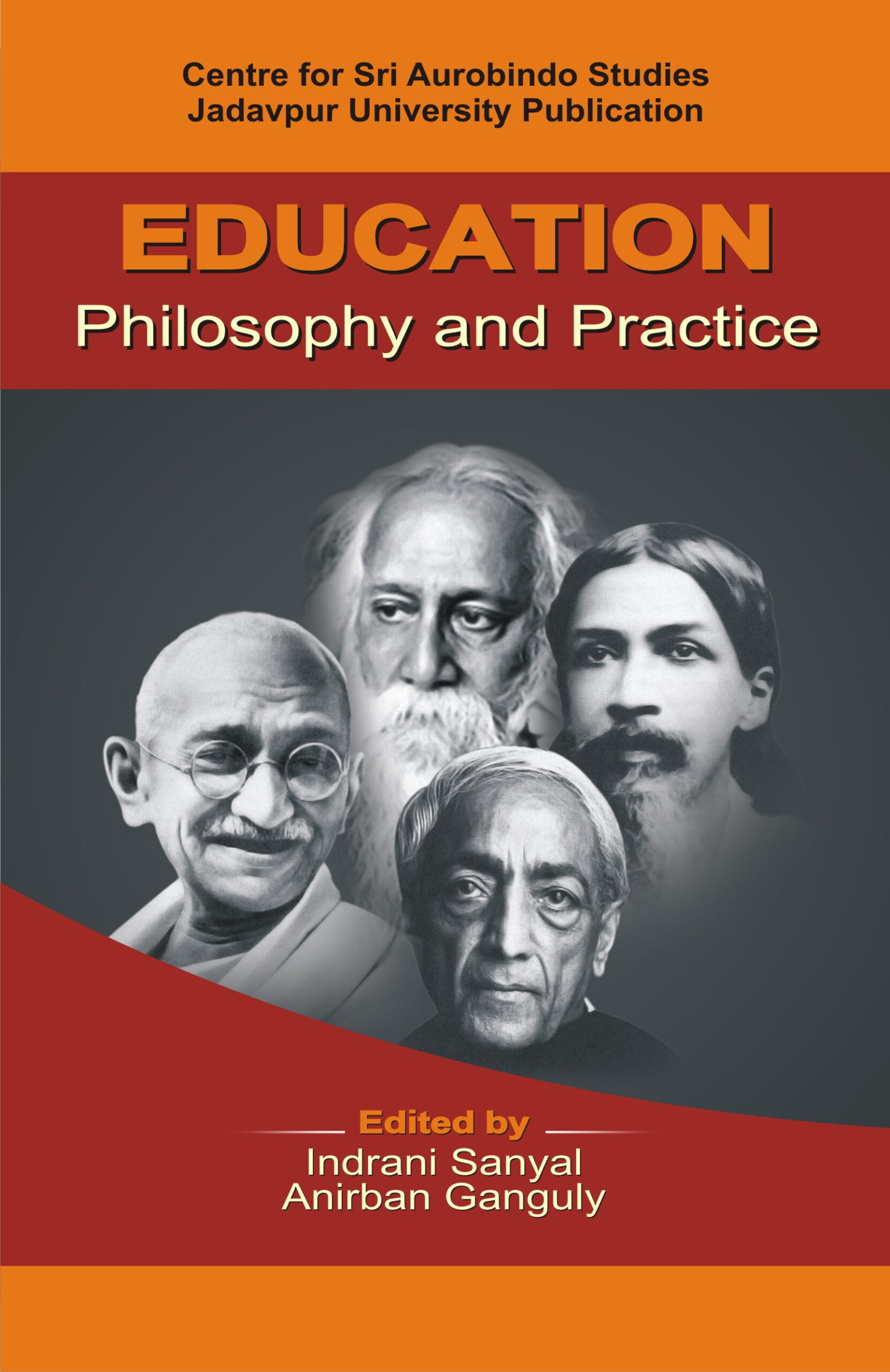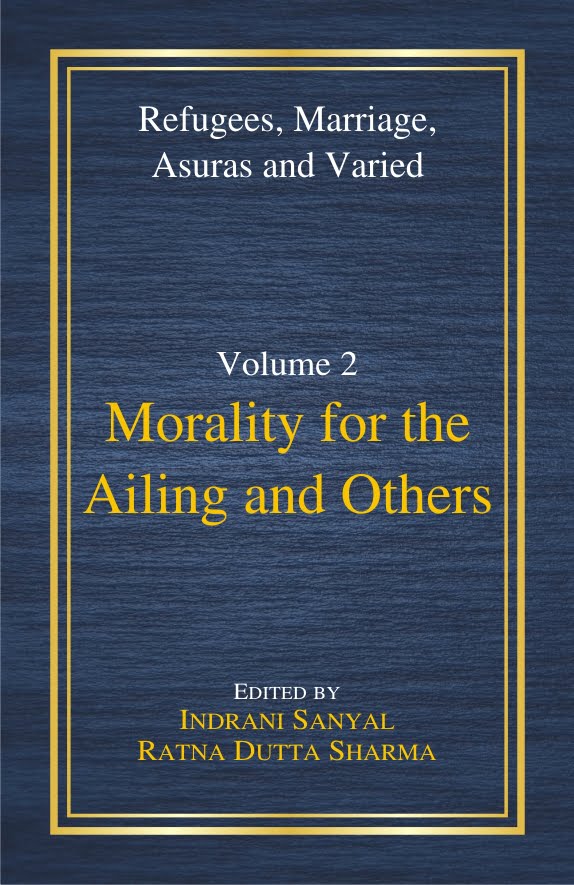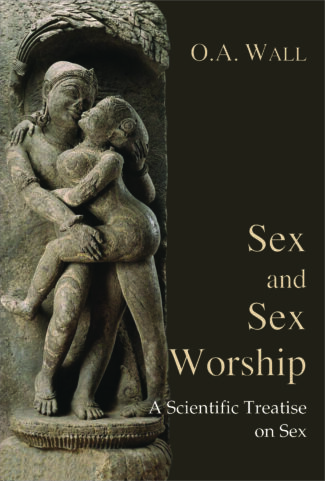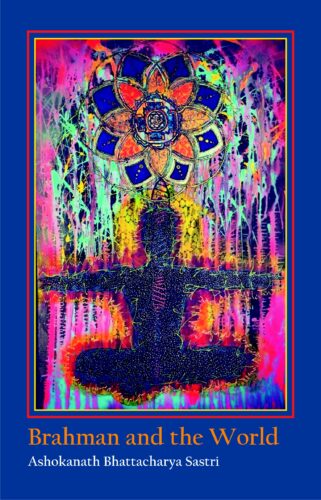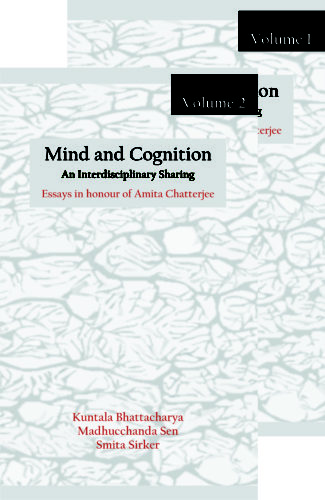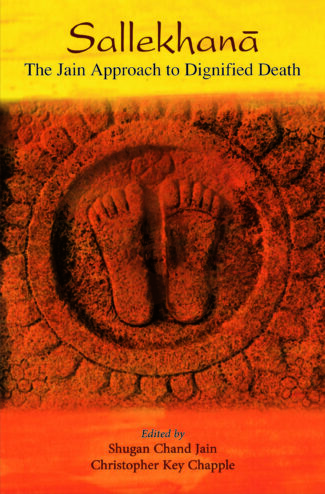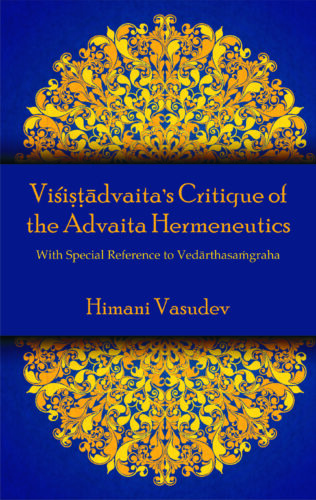

Jadavpur Journal of ...
Jadavpur Journal of Philosophy (Vol. 23, no. 1)
by: Indrani SanyalJadavpur Journal of Philosophy is a refereed, bi-issue journal, in English (No. 1) and Bengali (No. 2) published annually by the Department of Philosophy, Jadavpur University, Kolkata, India. The journal volume in Bengali is titled Darsan Biksa. The journal is devoted to the publication of original scholarly papers in any branch of philosophy. Its objective is to encourage contributions from scholars, dealing with specific philosophical problems connected with their respective fields of specialization.
₹300.00 Original price was: ₹300.00.₹270.00Current price is: ₹270.00.
ISBN: 9788124607626
Year Of Publication: 2014
Edition: 1st
Pages : 171p.
Language : English
Binding : Paperback
Publisher: Jadavpur University
Size: 24
Weight: 350
Jadavpur Journal of Philosophy is a refereed, bi-issue journal, in English (No. 1) and Bengali (No. 2) published annually by the Department of Philosophy, Jadavpur University, Kolkata, India. The journal volume in Bengali is titled Darsan Biksa. The journal is devoted to the publication of original scholarly papers in any branch of philosophy. Its objective is to encourage contributions from scholars, dealing with specific philosophical problems connected with their respective fields of specialization.

- Sale!Sex and Sex Worship by: O. A. Wall
₹1,990.00Original price was: ₹1,990.00.₹1,980.00Current price is: ₹1,980.00.Mankind, when it gave expression to its first dawning of religious thoughts, wove a fabric of myths and theories about religion, the warp of which ran through from earliest historical times to our own days as threads of the warp of philosophies and theories about sex, male, female, love, passion, lust, desire, procreation, offspring, etc. The succeeding ages and civilizations wove into its warp the woof of the individual religions, myths and fables of gods and goddesses, so that the whole fabric of beliefs became refined as mankind itself advanced.
Sex and Sex Worship is the result of a long-time, arduous study of the concept of sex and the worship of phallus in various civilizations and in the development of different religions, modern and old, over a period of many millennia. The book makes one grasp a lot of topics associated with sex and sex symbols such as nature of sex and reproduction, status of women, cosmo-gonies, sex in man and animal, sexual relationship of gods and goddesses, virgin worship, phallic festivals, among many, while making it clear that the worship of generative organs was rather a use of representations of phallus and yoni as symbols for certain religious ideas which were embodied in nature worship.
It also vividly talks about the concept of sex and sex organs in art and ethics, sculpture, art anatomy, etc. The contents in toto lead one to the myriad aspects and concerns associated with sex and phallic worship. It is a must read for a scholar and a common man alike. - Sale!Brahman and the World by: Ashokanath Battacharya Sastri
₹500.00Original price was: ₹500.00.₹450.00Current price is: ₹450.00.“The Vedānta has been rightly called the Finest Fruit of Indian Thought and the Upaniṣads as the Finer Flowers. Vedānta grows out of the teachings of the Upaniṣads and passes into the various systems in the writings of Śaṅkara, Bhāskara, Rāmānuja, Madhva and Vallabha, the great founders of Advaita, Bhedābheda, Viśiṣṭādvaita, Dvaitādvaita and Śuddhādvaita, respectively. However, there is a perception among Orientalists that while the Upaniṣads favour the Monistic doctrine, Bādarāyaṇa’s Brahmasūtra fundamentally opposes it on some of the most crucial points.
The book thus delves deep into the philosophies of both Bādarāyaṇa and Śaṅkara in enunciating the essential features of Brahman and Its association with the world. It thus discusses topics such as what sort of cause Brahman is?, and what sort of material causality is to be ascribed to It? It also addresses the conflicting views on the nature of Brahman like that of Vivarttavāda and of Rāmānuja’s Saguṇa-Brahman.
This book proposes to take up the question of Universal Causation to examine thoroughly as how far it is right to regard Brahman as the Universal Cause and how far sūtrakāra himself lent his support to each of the inter-conflicting schools of Vedānta. This book should, therefore, benefit all who are devoted to the philosophic teachings of Advaita Vedānta and its preceptors.” - Sale!Mind and Cognition An Interdisciplinary Sharing by: Kuntala Bhattacharya, Smita Sirker, Madhucchanda Sen,
₹4,000.00Original price was: ₹4,000.00.₹3,600.00Current price is: ₹3,600.00.“Knowing one’s tradition is important; but only when tradition is not presented as fossilised but as continuous with our present-day living. In most places we do not make enough effort to show the link between the classical philosophical thoughts and the contemporary world view. We need to show that we can still meaningfully interact with the classical philosophical systems”, writes Amita Chatterjee in her seminal essay “In Search of Counterpoints”. This volume is dedicated in her honour. “Knowing one’s tradition is important; but only when tradition is not presented as fossilised but as continuous with our present-day living. In most places we do not make enough effort to show the link between the classical philosophical thoughts and the contemporary world view. We need to show that we can still meaningfully interact with the classical philosophical systems”, writes Amita Chatterjee in her seminal essay “In Search of Counterpoints”. This volume is dedicated in her honour. Chatterjee belongs to a genre of philosophers, who have as part of their cultural heritage, like Raghunath Siromani and Immanuel Kant. Chatterjee, in addition to breaking cultural boundaries, desired to break boundaries that have kept professional disciplines apart. She deeply believes that there are certain basic questions that are questions not for any specific discipline. These questions, she thinks, could not be answered by remaining within one single discipline. It is no surprise that she was the founder of the first Cognitive Science Centre in India. Responding to her multifaceted academic talent, forty academics from diverse disciplines and from all over the world have contributed papers to this volume. The major areas of Chatterjee’s interest that feature in this volume are: (i) Fusion Philosophy, (ii) Mind and Cognition, (iii) Mind and Perception, (iv) Mind and Language, (v) Logic and Vagueness, (vi) Logic, (vii) Indian Philosophy, and (viii) Philosophy, Society and Popular Culture. Chatterjee’s intellectual autobiography and her responses to each of the papers are parts of this volume.
ISBN 9788124609514 (vol. 1)
ISBN 9788124609521 (vol. 2)
- Sale!Sallekhana by: Shugan Chand Jain, Christopher Key Chapple,
₹1,200.00Original price was: ₹1,200.00.₹1,080.00Current price is: ₹1,080.00.Jainism regards life to be eternal. Recognizing that the soul can never die, but merely takes a new body, a careful tradition welcoming death through intentional fasting developed more than two thousand years ago. A legal challenge Rajasthan was put forward in 2013, suggesting that this practice is harmful and coercive and targets women in particular. For a short while Sallekhanā, which means the “thinning of existence,” was declared illegal. In response to this controversy, three conferences were convened by the International School for Jain Studies to explore the legal, religious, and medical aspects of this practice. Experts discussed the long history of the practice, attested to in epigraphs throughout India; the ways in which fasting to death has become an acceptable practice in the Western world; and contemporary instances of its observance in India. This volume presents an interdisciplinary approach to thinking about the end of life, from biomedical, historical, religious, and legal perspectives.
- Sale!Visistadvaita’s Critique of the Advaita Hermenqutics by: Himani Vasudev
₹500.00Original price was: ₹500.00.₹450.00Current price is: ₹450.00.Vedānta is the very heart of Indian philosophy. The various schools of Vedānta have been explored under diverse categories including ontological and epistemological, but they are a storehouse of so much more. “Hermeneutics” in simple words can be the theory of interpretation and this book has studied the critique of the Advaita hermeneutics by Rāmānujācārya based on Vedic statements like tat tvam asi, tadaikāta bahu syāma, neha nānāsti kiñcana and many others in his book Vedārthasaṁgraha which mirrors a complete vision of the Upaniṣads. Rāmānujācārya has shown how the Śruti statements can be seen in a coherent manner resolving the conflicts of bheda and abheda. The nature of a word and its various śaktis, followed by how successful are words in describing the concepts of sat, cit and ānanda, are also discussed here.
This book is an initial effort in the hermeneutic studies of Indian texts, which have been kept limited to the scope of philosophy, theology or religion alone. Many more linguistic treasures can be found here.






